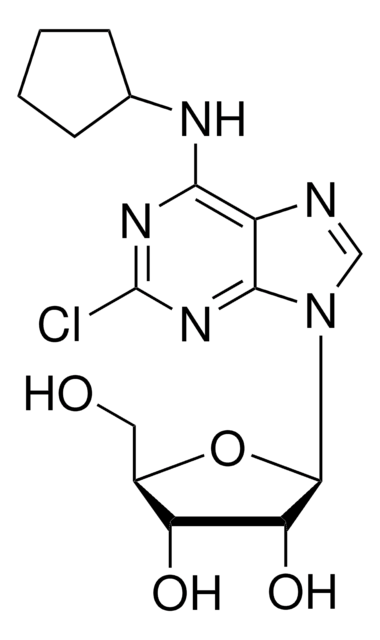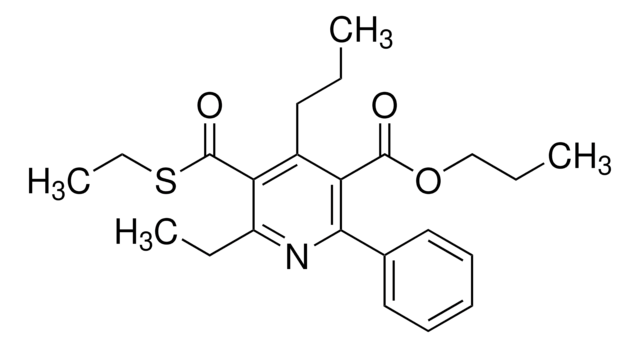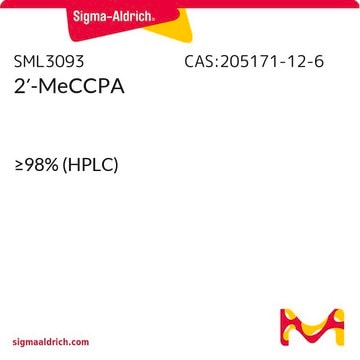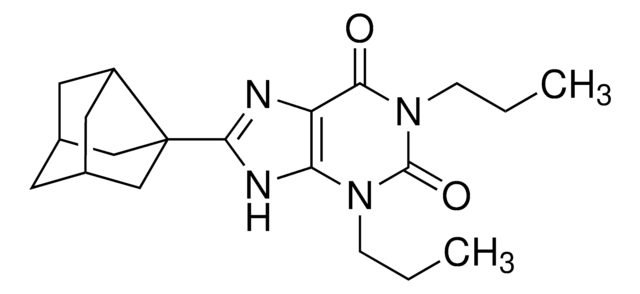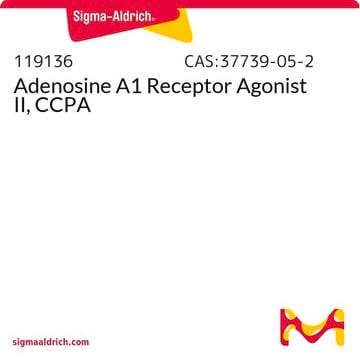C277
Chloro-IB-MECA
solid, ≥98% (HPLC)
Synonyme(s) :
Cl-IB-MECA
About This Item
Produits recommandés
Niveau de qualité
Pureté
≥98% (HPLC)
Forme
solid
Couleur
white
Solubilité
DMSO: >20 mg/mL
Chaîne SMILES
CNC(=O)[C@H]1O[C@H]([C@H](O)[C@@H]1O)n2cnc3c(NCc4cccc(I)c4)nc(Cl)nc23
InChI
1S/C18H18ClIN6O4/c1-21-16(29)13-11(27)12(28)17(30-13)26-7-23-10-14(24-18(19)25-15(10)26)22-6-8-3-2-4-9(20)5-8/h2-5,7,11-13,17,27-28H,6H2,1H3,(H,21,29)(H,22,24,25)/t11-,12+,13-,17+/m0/s1
Clé InChI
IPSYPUKKXMNCNQ-PFHKOEEOSA-N
Informations sur le gène
human ... ADORA1(134) , ADORA2A(135) , ADORA2B(136) , ADORA3(140)
rat ... Adora1(29290) , Adora2a(25369) , Adora3(25370)
Actions biochimiques/physiologiques
Code de la classe de stockage
11 - Combustible Solids
Classe de danger pour l'eau (WGK)
WGK 3
Point d'éclair (°F)
Not applicable
Point d'éclair (°C)
Not applicable
Équipement de protection individuelle
dust mask type N95 (US), Eyeshields, Gloves
Certificats d'analyse (COA)
Recherchez un Certificats d'analyse (COA) en saisissant le numéro de lot du produit. Les numéros de lot figurent sur l'étiquette du produit après les mots "Lot" ou "Batch".
Déjà en possession de ce produit ?
Retrouvez la documentation relative aux produits que vous avez récemment achetés dans la Bibliothèque de documents.
Notre équipe de scientifiques dispose d'une expérience dans tous les secteurs de la recherche, notamment en sciences de la vie, science des matériaux, synthèse chimique, chromatographie, analyse et dans de nombreux autres domaines..
Contacter notre Service technique

